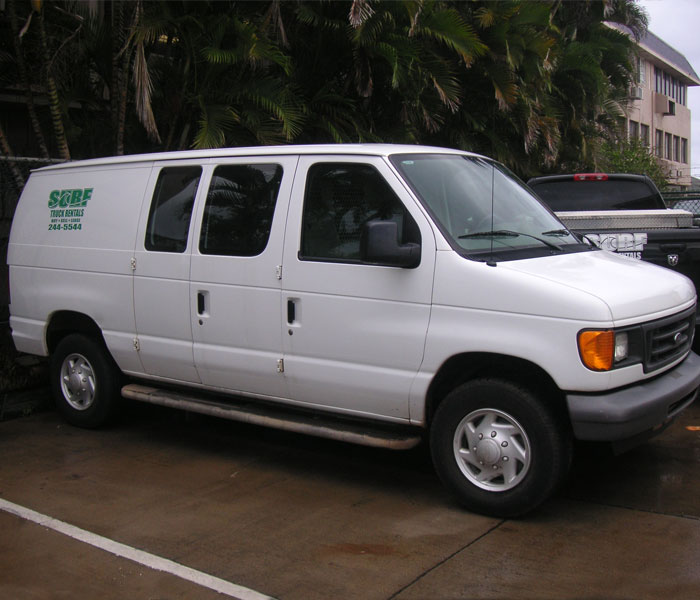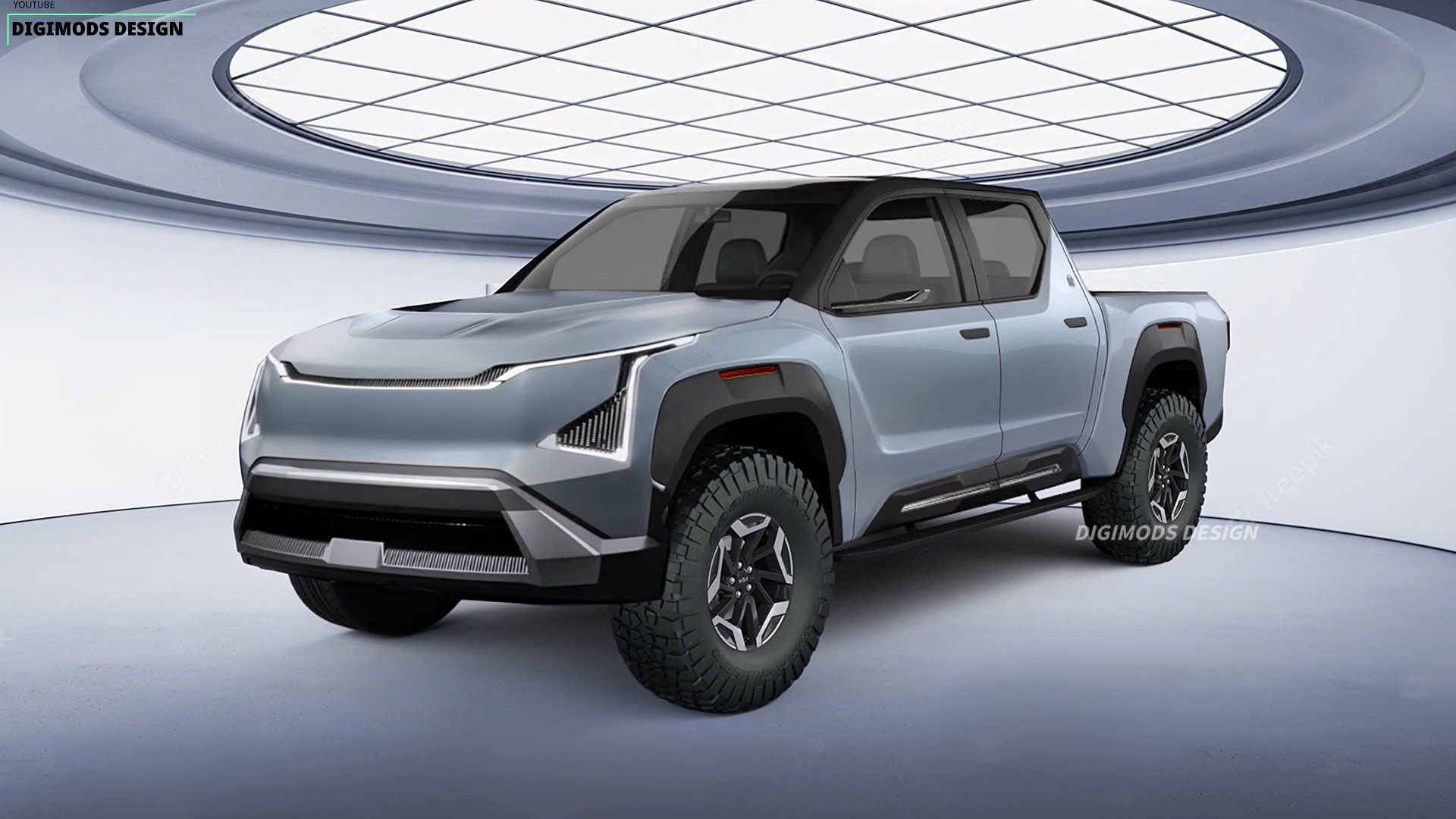Who Rents Pickup Trucks pickup.truckstrend.com
Defining the Need for Temporary Hauling
In a world increasingly focused on convenience and efficiency, the need for temporary solutions often outweighs the benefits of permanent ownership. This is particularly true when it comes to vehicles, especially those designed for heavy-duty tasks. While not everyone owns a pickup truck, a surprising number of individuals and businesses frequently find themselves in situations where a truck’s hauling capacity is indispensable. So, who rents pickup trucks? The answer is far more diverse and fascinating than one might initially imagine, encompassing a wide spectrum of users from the everyday homeowner tackling a weekend project to the seasoned professional needing specialized transport.
Who Rents Pickup Trucks
Renting a pickup truck offers unparalleled flexibility, allowing users to access the power and utility of a robust vehicle without the long-term commitment, maintenance costs, insurance premiums, or depreciation associated with ownership. This article delves deep into the various demographics and scenarios that drive the demand for pickup truck rentals, offering insights, practical advice, and a comprehensive guide for anyone considering this versatile option.
The Everyday Homeowner & DIY Enthusiast
Perhaps the most common demographic to rent a pickup truck is the everyday homeowner or the ardent do-it-yourself (DIY) enthusiast. These individuals frequently encounter situations where their personal car, SUV, or minivan simply won’t suffice.
Who rents pickup trucks in this category?
- Moving Furniture or Appliances: From a new refrigerator picked up from a big-box store to an antique dresser found at a yard sale, large items often require the open bed and robust capacity of a pickup.
- Home Renovation Projects: Hauling lumber, drywall, tiles, bags of concrete, or even kitchen cabinets from a hardware store is a breeze with a truck, saving multiple trips and potential damage to a smaller vehicle.
- Landscaping & Yard Work: Transporting bags of mulch, topsoil, gravel, large potted plants, or even disposing of significant amounts of yard waste (branches, old sod) makes a pickup truck an invaluable tool.
- Donating or Disposing of Large Items: When decluttering, a pickup truck is ideal for taking old furniture, appliances, or bulk trash to a donation center or a local landfill.

Why they rent: Most homeowners don’t need a pickup truck daily, making ownership an unnecessary expense. Renting provides access to the right tool for the job, precisely when needed, offering a cost-effective alternative to buying or relying on expensive delivery services. Practical advice for this group includes accurately estimating the size of the load to choose the correct truck size and understanding the rental company’s policies regarding personal use and mileage.
Small Businesses & Independent Contractors
Beyond personal use, a significant portion of who rents pickup trucks falls within the commercial sector, particularly small businesses and independent contractors. For these professionals, rental trucks serve as a crucial extension of their operations, offering flexibility and cost control.

Who rents pickup trucks in this professional capacity?
- Tradespeople (Plumbers, Electricians, Carpenters): While many have their own work vehicles, a rental truck can be essential for transporting large equipment, bulk materials for a big project, or as a temporary replacement when their primary vehicle is out of commission.
- Landscapers & Gardeners: For jobs requiring more capacity than their standard setup, or for occasional equipment transport (e.g., a mini-excavator, large sod rolls), rental pickups are ideal.
- Event Planners & Caterers: Transporting stages, tents, tables, chairs, or large catering equipment to venues often necessitates a robust vehicle.
- Delivery Services & Couriers: Independent contractors offering last-mile delivery services might rent a pickup for oversized items that don’t fit into standard vans or cars.
- Start-ups & Businesses with Fluctuating Needs: Instead of investing heavily in a fleet, new businesses or those with seasonal demands can scale their transport capabilities up or down by renting as needed.

Important Considerations: Businesses often look for commercial accounts offering better rates, long-term rental options, and potentially specialized truck types (though standard pickups are common). Insurance coverage is paramount, often requiring commercial auto insurance riders. Understanding mileage limits and fuel policies is critical for managing operational costs.
Outdoor Enthusiasts & Recreational Users
The appeal of a pickup truck isn’t limited to work; it extends significantly into the realm of leisure and adventure. Many outdoor enthusiasts discover that renting a pickup truck unlocks new possibilities for their recreational pursuits.
Who rents pickup trucks for adventure?
- ATV, Dirt Bike, or Snowmobile Owners: For those who don’t own a truck but want to transport their recreational vehicles to trails or tracks, a rental with a ramp is a perfect solution.
- Campers & Overlanders: Hauling extensive camping gear, firewood, or even a small pop-up camper often requires a truck’s bed capacity and towing capabilities.
- Boating & Kayaking Enthusiasts: Renting a truck equipped with a hitch can facilitate the transport of small boats, jet skis, or multiple kayaks to the nearest lake or ocean access point.
- Tailgaters & Event Goers: For large gatherings, concerts, or sporting events, a pickup truck offers ample space for coolers, grills, tents, and all the necessary tailgating paraphernalia.
Challenges & Solutions: The primary challenge here is ensuring the rental truck is equipped for towing (if needed) and understanding its towing capacity. Renters should always inquire about hitch availability and confirm the truck meets their specific towing requirements. Proper load securement is also vital to prevent accidents and damage to gear.
Navigating Unexpected Hauling Needs
Life is full of surprises, and sometimes these surprises come with a sudden need for a pickup truck. This category highlights the spontaneous and often urgent reasons who rents pickup trucks.
Who rents pickup trucks under unforeseen circumstances?
- Vehicle Breakdown: When a personal vehicle is unexpectedly out of commission, and a large item needs to be moved, a rental truck can fill the gap.
- Sudden Large Purchases: Finding an incredible deal on a large appliance, furniture set, or a bulk purchase at a clearance sale might necessitate a quick rental to get it home.
- Helping Friends or Family: A call for help to move a child into a dorm, clear out a garage, or transport items for an elderly relative often leads to a quick rental decision.
- Disaster Relief or Emergency Situations: In times of natural disaster, individuals or community groups might rent trucks to transport supplies, clear debris, or assist with recovery efforts.
Practical Advice: For urgent rentals, availability can be limited, and prices might be higher. It’s advisable to check multiple rental agencies and be flexible with truck size if immediate need outweighs specific preferences. Understanding last-minute cancellation policies is also wise.
The Economic & Practical Case for Renting
Beyond the specific scenarios, there are overarching reasons who rents pickup trucks as a deliberate choice over ownership. These reasons are often rooted in economics, practicality, and lifestyle.
- Cost-Effectiveness: Owning a pickup truck involves significant costs: purchase price, depreciation, insurance, fuel, maintenance, and registration. For someone who only needs a truck a few times a year, renting is vastly more economical.
- Infrequent Need: If a truck is only needed for specific, occasional tasks, why bear the burden of ownership? Renting provides the utility without the commitment.
- Space Constraints: Many urban and suburban dwellers lack the driveway or garage space to comfortably park a large pickup truck. Renting eliminates this issue.
- Specific Project Requirements: Sometimes a project requires a specific type or size of truck (e.g., a heavy-duty model for a particularly large load) that an individual wouldn’t typically own. Renting allows access to that specialized vehicle.
- Avoiding Maintenance & Depreciation: Rental companies handle all maintenance, repairs, and the inevitable depreciation of the vehicle, freeing the renter from these concerns.
A Practical Guide to Renting a Pickup Truck
For anyone now considering joining the ranks of who rents pickup trucks, understanding the process is key to a smooth experience.
-
Choose the Right Size & Type:
- Mid-size (e.g., Ford Ranger, Toyota Tacoma): Good for smaller loads, light furniture, general errands.
- Full-size Light Duty (e.g., Ford F-150, Ram 1500): Most common, versatile for moving, DIY, recreational use.
- Full-size Heavy Duty (e.g., Ford F-250, Ram 2500): For very heavy loads, serious towing. Less common for standard rentals.
- Consider Bed Length: Short bed (5.5 ft) vs. Standard bed (6.5 ft) vs. Long bed (8 ft).
- Cab Type: Single cab, extended cab, or crew cab (for passenger space).
-
Booking Process:
- Online: Most major rental companies (U-Haul, Enterprise, Budget, Penske, Ryder) offer online booking. This is often the easiest and allows for comparison.
- Phone/In-Person: Useful for complex situations, specific questions, or last-minute needs.
- Book in Advance: Especially for weekends, holidays, or peak seasons, booking ahead ensures availability and often better rates.
-
Required Documentation:
- Valid Driver’s License (from your country of residence).
- Credit Card (for payment and security deposit). Debit cards might be accepted with stricter requirements.
- Minimum Age: Typically 21 or 25, though some companies allow 18 with a young driver surcharge.
-
Insurance Options:
- Personal Auto Insurance: Check if your existing policy extends to rental vehicles.
- Credit Card Coverage: Many credit cards offer secondary rental car insurance benefits.
- Rental Company Insurance: Collision Damage Waiver (CDW), Supplemental Liability Insurance (SLI), Personal Accident Insurance (PAI), etc. Carefully evaluate if these are necessary given your existing coverage.
-
Pickup and Return:
- Inspect Thoroughly: Before driving off, take photos or videos of any existing damage (scratches, dents) to avoid being charged later.
- Fuel Policy: Understand if you need to return the truck with a full tank or if there’s a pre-paid fuel option.
- Return on Time: Late returns can incur significant fees.
Practical Advice for Renters:
- Always clarify mileage limits and any associated per-mile fees.
- Understand the rental period (24 hours for a "day" often).
- Ask about any one-way rental options if applicable.
- Secure your load properly with straps or ropes to prevent shifting and potential accidents.
- Drive cautiously; pickup trucks handle differently, especially when loaded.
Price Table: Estimated Pickup Truck Rental Costs
Note: Prices are highly variable based on location, rental company, time of year, duration, mileage, and specific add-ons. These are estimates for comparison purposes only.
| Truck Type | Capacity / Features | Estimated Daily Rate (24 hr) | Estimated Weekly Rate | Estimated Monthly Rate |
|---|---|---|---|---|
| Mid-Size Pickup | Light loads, small furniture, general hauling. | $70 – $120 | $350 – $600 | $1000 – $1800 |
| Full-Size Light Duty | Most common for moving, DIY, appliance transport. | $80 – $150 | $400 – $750 | $1200 – $2200 |
| Full-Size Heavy Duty | Very heavy loads, significant towing. Less common. | $100 – $200+ | $500 – $1000+ | $1500 – $3000+ |
| Add-Ons | Insurance, mileage fees (if applicable), dollies, pads | Varies | Varies | Varies |
Important Notes:
- Mileage: Some rentals include unlimited mileage; others charge per mile after a certain limit (e.g., $0.29-$0.99/mile).
- Fuel: Renters are typically responsible for fuel costs.
- Insurance: Additional insurance (CDW, SLI) can add $15-$40+ per day.
- Taxes & Fees: Local taxes, airport surcharges, and environmental fees will apply.
- Young Driver Surcharge: Renters under 25 (sometimes 21) will incur an extra daily fee ($20-$50).
- Deposit: A security deposit is usually required, refunded upon return.
Frequently Asked Questions (FAQ)
Q1: What’s the minimum age to rent a pickup truck?
A1: Most major rental companies require renters to be at least 21 years old, and some require 25 for certain vehicle classes or to avoid a "young driver" surcharge. U-Haul is an exception, often allowing rentals for those 18 and older.
Q2: Do I need special insurance to rent a pickup truck?
A2: It depends on your existing coverage. Your personal auto insurance policy might extend to rental trucks, or your credit card might offer secondary coverage. Rental companies also offer various insurance options (Collision Damage Waiver, Supplemental Liability Insurance) that you can purchase for added protection. It’s best to check with your personal insurer and credit card company before renting.
Q3: Can I tow with a rented pickup truck?
A3: This varies by rental company and truck model. Some companies specifically prohibit towing, while others allow it if the truck is equipped with a hitch and the renter informs them of their intention to tow. Always confirm with the rental agent and ensure the truck’s towing capacity meets your needs.
Q4: What’s the difference between a pickup truck rental and a cargo van rental?
A4: A pickup truck has an open bed, ideal for hauling bulky, dirty, or oddly shaped items that might not fit in an enclosed space, or for towing. A cargo van has an enclosed cargo area, offering protection from the elements and better security for smaller, valuable items. The choice depends on what you’re moving.
Q5: Are there mileage limits on rental trucks?
A5: Yes, many pickup truck rentals come with mileage limits, especially for longer durations or cheaper daily rates. Once you exceed the included mileage, you’ll be charged a per-mile fee. Some premium rentals or specific promotions might offer unlimited mileage. Always clarify this before booking.
Q6: Can I rent a pickup truck for one-way trips?
A6: Yes, many major rental companies (like U-Haul, Penske, Enterprise, Budget) offer one-way pickup truck rentals, particularly for moving purposes. These rentals often come with different pricing structures than round-trip rentals, and availability might be limited.
Conclusion
The question of who rents pickup trucks reveals a fascinating tapestry of needs, circumstances, and practical considerations. From the weekend warrior tackling a home improvement project to the small business owner expanding their operational capacity, and from the outdoor enthusiast seeking adventure to someone facing an unexpected hauling challenge, the utility of a rented pickup truck is undeniable. It represents a smart, flexible, and cost-effective solution for anyone requiring the muscle of a truck without the commitment of ownership. By understanding the diverse user base, the practical benefits, and the straightforward rental process, more individuals and businesses can confidently tap into this valuable resource, making light work of heavy tasks and unlocking new possibilities.



